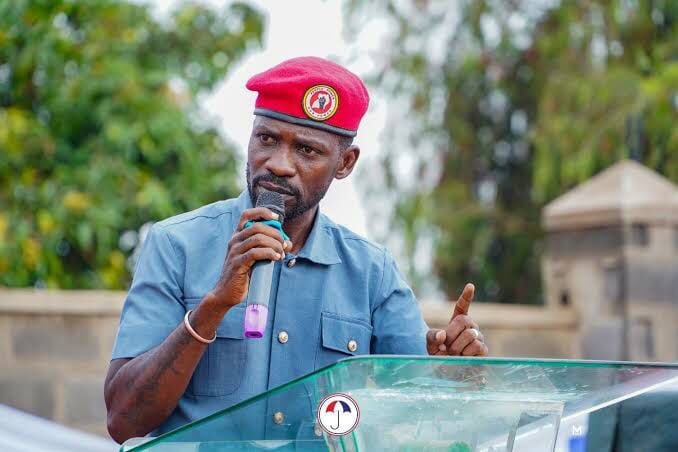National Unity Platform (NUP) president Robert Kyagulanyi, popularly known as Bobi Wine, has once again taken aim at Uganda’s ruling establishment, accusing it of orchestrating systematic political violence, betraying its own operatives, and using state resources to suppress opposition voices ahead of the 2026 general elections.
Speaking during a media address at the NUP headquarters in Makerere Kavule on Wednesday, Kyagulanyi alleged that President Yoweri Museveni’s government was engaging in “a dangerous pattern of political repression,” particularly targeting opposition supporters and vulnerable youths.
Kyagulanyi recounted a chilling incident involving a young man who he claimed had been used by the state to commit violence, with promises of financial reward that were never fulfilled. “These people use you to rob your future,” he said, urging parents across the country to educate and protect their children from being lured into state-sponsored violence and corruption.
He further alleged that six youths were abducted from Ndejje and taken to Kasokoso, where they were later killed, although he did not provide evidence or independent verification of the claims. Nonetheless, he insisted these incidents were part of a wider pattern of disappearances, extrajudicial killings, and intimidation aimed at crippling the opposition.
In response to growing fears of political violence, the NUP leader announced the formation of a special internal committee to track and investigate all cases of violence, intimidation, and corruption reported by party members and the general public.
“We are going to track all cases of political violence and corruption,” Kyagulanyi said. “Those who take bribes and those who give them will be held accountable. We must document everything.”
On internal party matters, Kyagulanyi took the opportunity to clarify that NUP does not charge any fees for issuing party tickets, following reports of internal misunderstandings. However, he acknowledged the financial strain involved in running party activities and called on supporters and well-wishers to participate in a fundraising campaign scheduled for Monday next week.
“That doesn’t mean the party doesn’t need money,” he said. “We rely on our people to keep this struggle going.”
Kyagulanyi also claimed that the government had allocated a staggering Shs30 billion specifically to undermine NUP, through infiltration, coercion, and financial inducements targeting members and leaders.
“We know they are using money to weaken us,” he warned. “But we shall not be bought. We shall not be silenced. We are not shaken. This party is committed to delivering a new Uganda.”
These comments come at a time when Uganda’s political landscape is becoming increasingly tense in the lead-up to the 2026 general elections. The NUP leader, who emerged as the most prominent opposition figure during the 2021 elections, has previously faced multiple arrests, campaign restrictions, and accusations of inciting unrest.
International human rights organisations have regularly voiced concerns over limited political space in Uganda, citing arbitrary arrests, media censorship, and restrictions on assembly and association.
As campaigning begins to pick up pace, many observers believe the NUP’s strategy to document political violence could shape the opposition’s broader approach, while also increasing public awareness of state actions.
Kyagulanyi has often framed his message around youth empowerment, human rights, and democratic reform, positioning the NUP as the political home for those disillusioned by the current system.
With the party gaining increasing traction among urban youth and the diaspora, it remains to be seen how the government will respond to these growing challenges, especially as electoral preparations intensify.
